- Faculty of Engineering
- Department of Electronics and Computer Engineering Department of Electrical Systems Engineering Department of Mechanical Systems Engineering Department of Intelligent Mechanical Engineering Department of Civil and Environmental Engineering Department of Architectural Engineering
- Faculty of Applied Information Science
- Department of Computer Science Department of Information and Communication Department of Information Systems and Management
- Faculty of Environmental Studies
- Department of Architectural Design Department of Global Environment Studies
- Faculty of Life Sciences
- Department of Clinical Engineering Department of Food Sciences and Biotechnology
- Graduate School
- Major in Intelligent Structure and Functional Science Major in Electrical and Electronic Engineering Major in Mechanical Systems Engineering Major in Civil and Architectural Engineering Major in Information Systems Science Major in Environmental Studies Major in Biological and Biomedical Engineering
Faculty of Engineering
Department of Architectural Engineering
- Department Introduction
- Education and Research Areas
- Subject Introduction
- Curriculum
- Careers and Further Study
- Department Introduction MOVIE
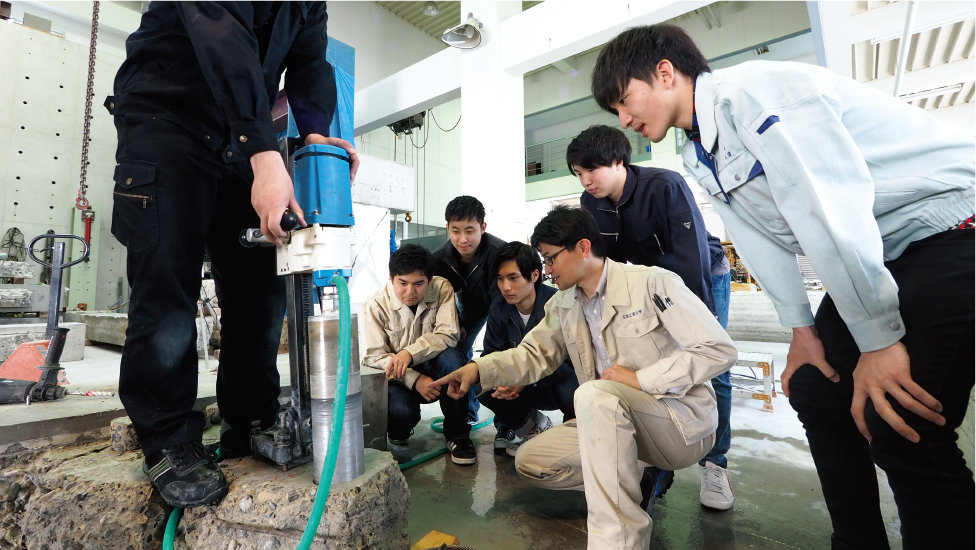
Producing architects equipped to create buildings that are both safe and comfortable.
The Department of Architectural Engineering cultivates building construction professionals who are equipped with the knowledge needed to plan, design, construct and maintain buildings. Through design drawing instruction, laboratory work and practical training, students refine their ability to visually represent and orally communicate information; resolve issues related to safety, functionality, economic efficiency and comfort; and demonstrate cooperation and leadership skills.
Education and Research Areas
-
Structures
Through courses such as “Structural Analysis Methods,” “Reinforced Concrete Structural Studies” and “Architectural Construction Laboratory,” students will gain structure-related knowledge which can be usefully applied to the construction of disaster-resilient buildings.
-
Production, Maintenance and Materials
Through courses such as “Building Materials Science,” “Architectural Production” and “Geotechnology,” students acquire production and materials-related knowledge, as well as are equipped with the skills to perform actual construction of safe buildings.
-
Planning
Through courses such as “Architectural Planning,” “Architectural History,” “Architectural Design and Techniques” and “Urban Design,” students acquire planning-related knowledge and are taught essential planning theory for designing various architectural structures.
-
Environment and Facilities
Through courses such as “Architectural Environmental Engineering” and “Architectural Installations,” students acquire environment-related knowledge which they can apply in creating comfortable urban environments and indoor environments.
Subject Introduction
-
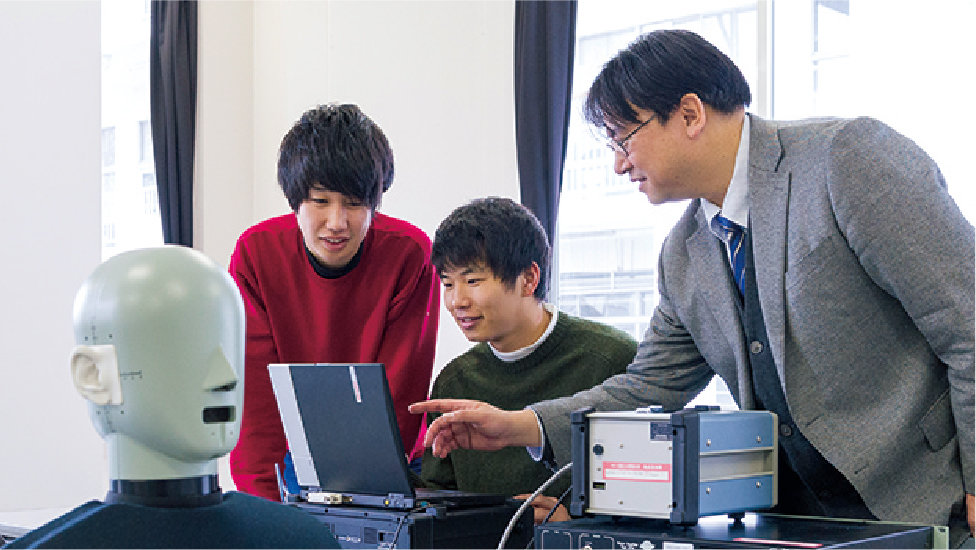
Architectural Environmental Engineering A and B
With a focus on what makes interior and urban environments comfortable, healthy and safe to live in, students will learn engineering methods for ensuring that essential heat, air, noise, water, etc., from natural or urban environments is incorporated while that which is harmful is eliminated.
-
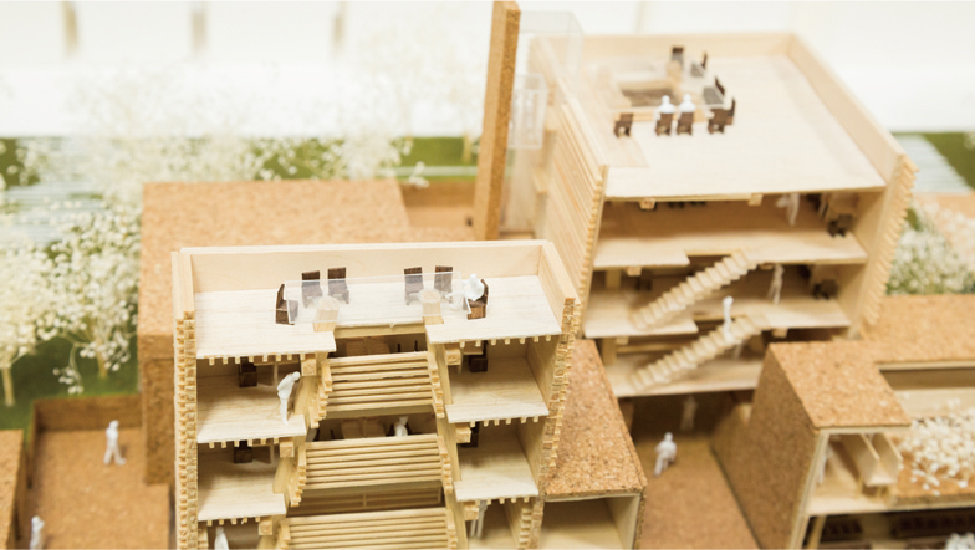
Architectural Design Drawing I and II
Students will learn the basic architectural design skills of technical drawing, design-focused thinking and conceptualization, creativity, design techniques and presentation.
-
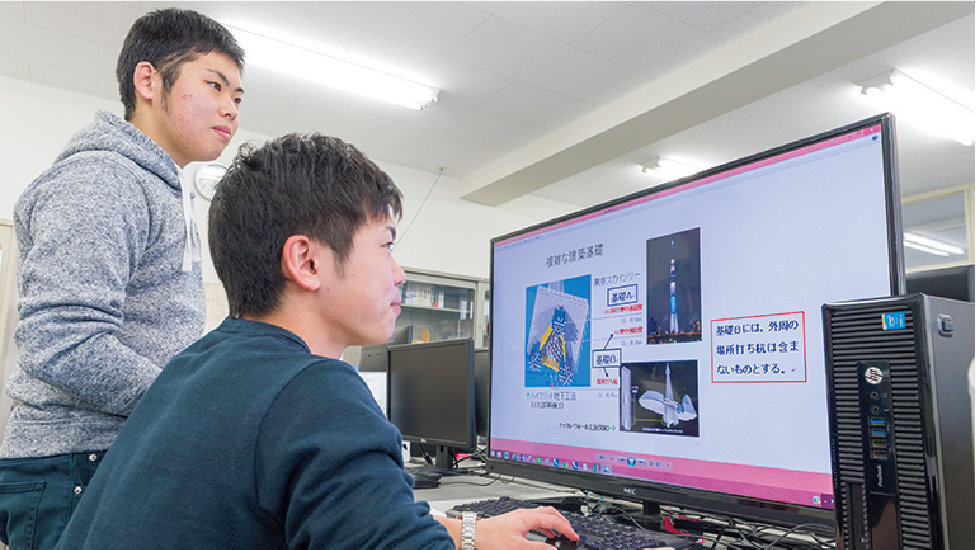
Building Foundation Structures
Students will learn about the basic approaches to, and points to remember when, handling dirt as a building material, and they will receive practical training to cultivate the applied skills and decision-making skills needed when designing and constructing foundation structures.
-
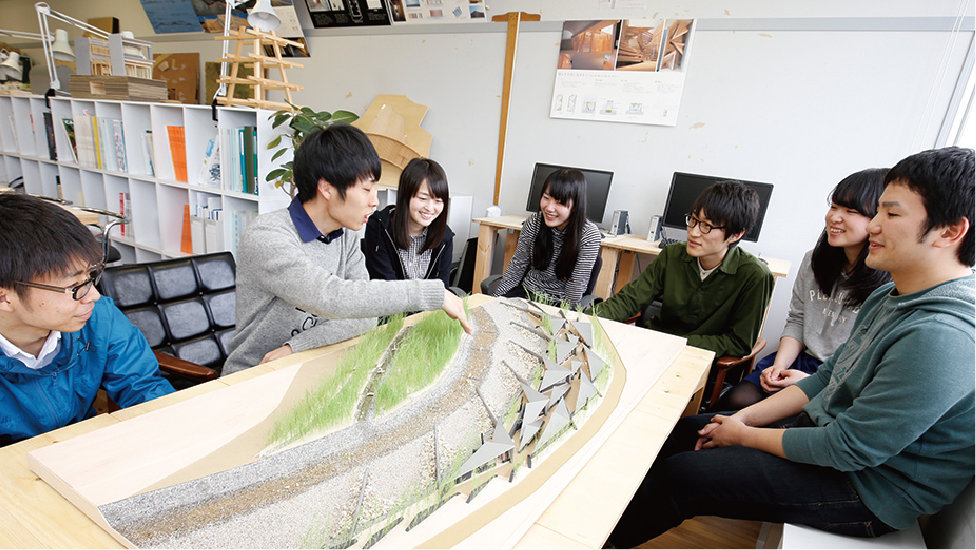
Specialization Seminar A and B
By examining cities through the lens of past disasters, students gain an understanding of the methods used to prevent or mitigate the threat posed by possible future disasters to urban infrastructure, architecture and the lives of residents, as well as gain an understanding of, and the ability to consider engineering solutions to, the situations and challenges in the social system.
-
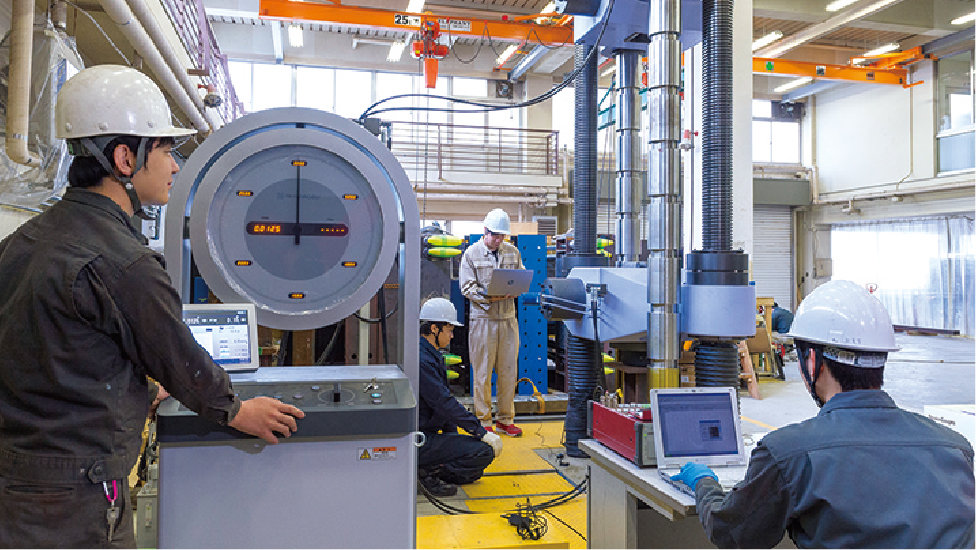
Architectural Construction Laboratory
Students will undertake laboratory work to cultivate an empirical understanding of the architectural construction theory they learned in “Steel Structures,” “Reinforced Concrete Structural Studies” and “Architectural Vibration Studies.” Also, students will perform laboratory work which involves using the properties of architectural materials to determine their effectiveness as architectural construction components.
Curriculum
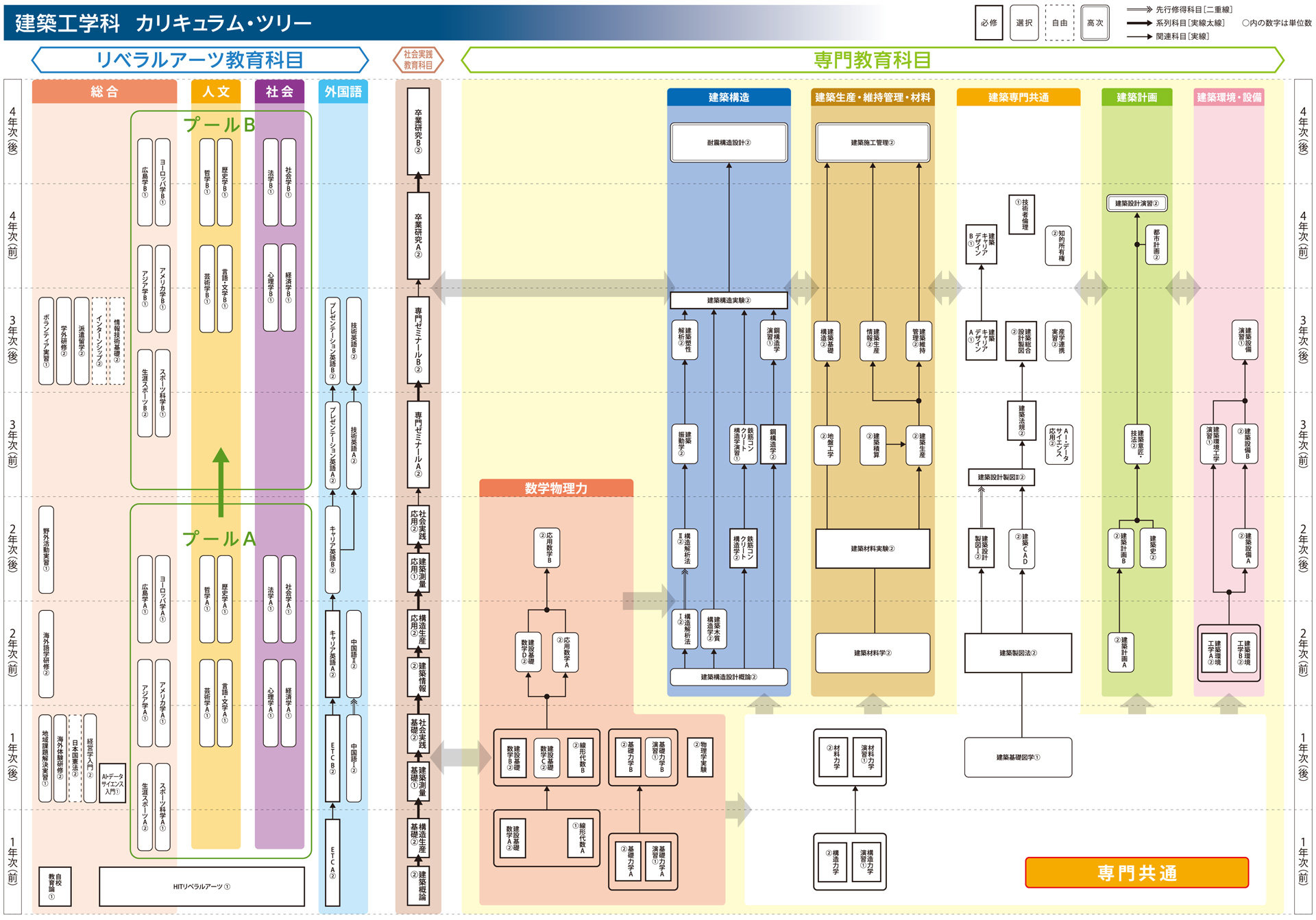
Japanese only






